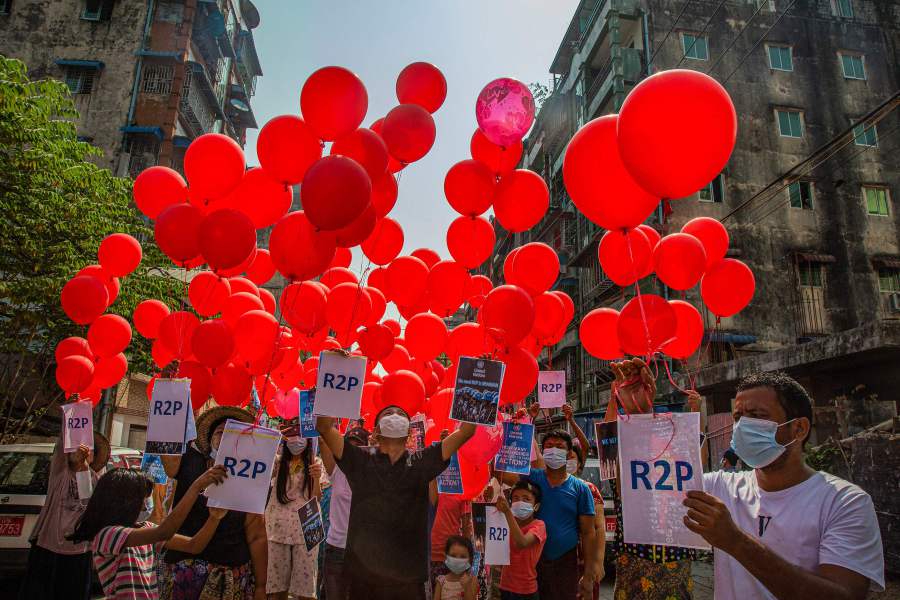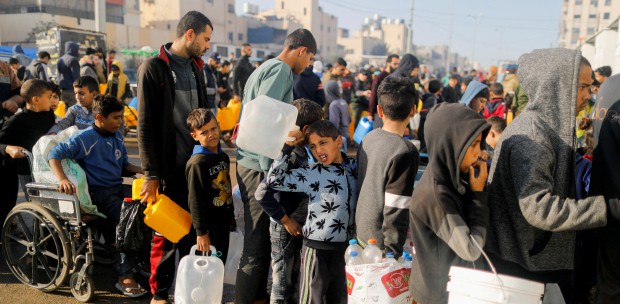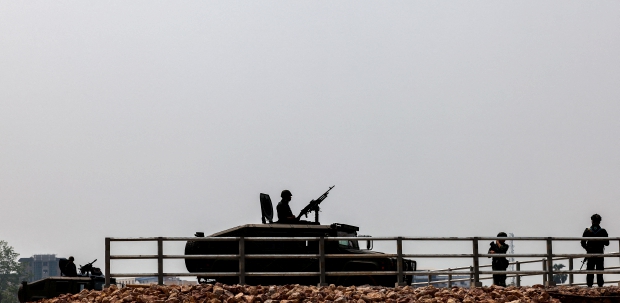THE Myanmar military have long behaved as an invading, occupying army in their own country and against their own people.
Even during the period of so-called democratic transition, observers and human rights defenders recognised that the veneer of civilian government was thin and fragile.
The army's genocide against the Rohingya and the lockdown of Rakhine State have acted as a constant assertion by the military that they maintain ultimate power.
The military coup on Feb 1, along with the detention of Aung San Suu Kyi and President U Win Myint, left no doubt that the Myanmar army is a hostile and tyrannical force determined to subjugate the country for its own interests.
This week, Prime Minister Tan Sri Muhyiddin Yassin expressed our government's grave concern about the people of Myanmar, and the future of that brotherly nation.
He seconded Indonesian President Joko Widodo's call for an emergency meeting of Asean, and indeed, such a summit is urgently necessary.
The actions of the Myanmar military ripple throughout the region, impacting geostrategic dynamics, economic relations and immigration issues, among other vital factors of regional stability. Asean nations have been remarkably forbearing in recent years, while Myanmar has created crisis after crisis with which we have had to grapple through no fault of our own.
A peculiar and unacceptable situation has developed in which governments throughout Southeast Asia exhibit greater care and concern about the people of Myanmar than their own regime in Yangon.
The Myanmar military must recognise that they are not above the law, they are not exempt from the duties of our alliance and the principles of the Asean Charter, and that Myanmar does not exist in a vacuum.
Muhyiddin is correct in stating that "only through an open, sincere and honest discussion" between Asean members will a positive resolution be reached that can rescue the people of Myanmar from this crisis.
It should be made clear that the non-interference principle does not give the Myanmar army carte blanche, and that Asean states are not without options for addressing their despotic behaviour.
We are not, for instance, obliged to maintain diplomatic and economic relations with lawless regimes, the combined private sector power of Asean nations is enormous and jeopardising Myanmar's access to this market, to investment, to trade, is not a risk worth taking.
Myanmar's military regime cannot afford to alienate Malaysian, Indonesian and Singaporean companies, investors and expertise. All of these are free to cut ties as they see fit, or as persuaded by their respective governments.
Myanmar cannot expect to reap the benefits of Asean membership without fulfilling the responsibilities thereunto, and this needs to be explicitly communicated to Yangon.
The economic zone created by Asean was intended to uplift all the peoples of this region, not to reward and enrich a cadre of officers imposing their rule with an iron fist to the detriment of their citizens.
What company could feel secure doing business with a country that does not respect the rule of law? What investor could entrust his capital in a country where basic democratic rights and transparency do not exist, and where the government rules by arbitrary diktat?
On Feb 1, the Myanmar military declared that they no longer wish to cooperate with the economic powerhouse of Asean, and it is up to Asean to convey to the junta the full and devastating ramifications of this decision.
Malaysia has proven time and again to be an ally of the people of Myanmar and a supporter of democracy and human rights in that embattled country.
Muhyiddin's statement this week demonstrates that we continue to advocate for the best interests of the population, and will pursue freedom and security for Myanmar by all available means.
That is in the enlightened self-interest of every Asean member, and it is fundamental to our values as Malaysians, and indeed, as human beings.
It is not far-reaching to stand as the region that collaborates to address the abuses of humanity in one voice for a peaceful world society.
The writer is founder, Centre for Human Rights Research and Advocacy (CENTHRA)





